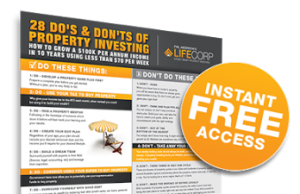Pitching your business to investors can be daunting for many founders or CEOs. Your pitch is a critical moment in the lifecycle of your business and one that can either get your business off the ground or halt it in its tracks. A successful pitch can bring valuable partnerships to your business, ones that come with substantial financial incentives. With the stakes so high, it is well worth learning what investors are looking for and what to avoid during your pitch.
As an angel investor I receive multiple, weekly pitches from business founders seeking investment. Sometimes the pitches interest and inspire me and other times, they fall completely flat. Great pitches all have one thing in common, they understand what the investor is looking for and they deliver a pitch that motivates and persuades the investor that their business is worth taking a risk on.
It will not matter what type of investor you are pitching to, be it an angel, venture capitalist or bank. There are specific criteria that need to be evident in order to gain our interest in investing. Knowing and understanding these elements will help to ensure that your pitch is successful and get your start-up heading in the right direction.
Commit to your business
When I invest, I am investing in the person driving the business, not just their business plan. I require that person to be completely committed to their business and I need to see evidence of this. There must not be any other side projects or part-time jobs. Don’t make the mistake of having a ‘safety net’ in place. A ‘safety net’ or ‘back up plan’ does not demonstrate to investors that you have confidence in your business or your ability to make it prosperous.
To succeed in a business and nurture it from conception to growth, requires an ‘all in’ attitude and an immense amount of focus, leaving no space for distractions.
Have something to show
During a pitch you have a short window of time to grab your potential investors’ attention. The best way to do this is to make your presentation visual and interactive. Don’t make the mistake of arriving empty handed. I strongly advise having a prototype in place or something tangible investors can touch and feel. It’s one thing to tell an investor about what makes your business or product unique, but it’s far better to show them. Investors want to be able to try your product, to interact with it and see what it is that will compel customers to buy it.
Psychology studies tell us that the longer someone touches or holds something, the more attached they begin to feel to it and the more ownership they take of it. It is worth keeping this in mind before your pitch and creating a prototype may be necessary in getting your investor over the line. An appealing prototype can also help enhance your chances of winning larger investment.
Develop a clear strategy
It is vital that you come to your pitch with a clear marketing and sales strategy. Without a marketing and sales strategy in place your pitch is likely to fail because deals make the wheels turn. Your product may be revolutionary, but it still will not sell itself and the success of your business often comes down to marketing and how you sell your product. Investors need to see that you not only have a great product, but also an impermeable (but pliable) strategy for getting the product to market.
Insure that you have a clear go-to-market strategy and you can easily articulate and demonstrate who your target market is, how you are marketing to them, and what their customer journey looks like once they connect with your business.
Timing
Lastly, don’t make the mistake of gaining investment that you don’t actually need. You should consider carefully if it is the right time for you to seek investors and if you really need them at all. If you don’t absolutely need investment to get your startup off the ground, then it might be wise to avoid it. It may be more beneficial for you to grit your teeth and put up with some growing pains in order to self-fund your business from the start.
As your business grows and prospers you may need to raise capital at a later stage in order to take it to the next level, perhaps to shift it from a local to global scale. At this time, you may want to consider investment, however your business will have much more value and you may find that this value offers up a greater selection and caliber of investors.
Take the time you need to get your pitch right so that you can successfully deliver what an investor wants. When you do this, you will have a truly irresistible pitch that will have investors insisting you take their money.
Nick Bell is one of Australia’s most prolific self-made businessmen. A university dropout, Bell was ranked 38 on the 2016 BRW Young Rich List and named a finalist in the 2016 EY Entrepreneur of the Year. Originally from country Victoria, this cheeky but compassionate entrepreneur has a hugely motivational story. From university dropout to hotel porter, professional golfer, and now global digital marketing and tech influencer, Bell is one of the most driven, passionate and hardworking businessmen in the country. In May 2017 Bell finalised a deal which saw him sell WME to Melbourne IT for $39million and exited the company at the end of June 2017. Bell started WME IN 2008 with his last $400 in his bedroom before rapid growth led to staff of over 200, large clients including Spalding, The Atlantic Group, Rodger David and Allied Pickfords, and an impressive awards tally, including a listing in the Deloitte Technology Fast 50 for three years running. During WME’s growth spurt, Bell also started, co-founded or invested in a number of other companies in Australia and overseas. He remains involved in these ventures, which include mobile-first agency Appscore and hosting company Hosting Australia. Bell also remains head of a global group of digital companies employing 300 people across six countries along with being an investor in Tribe, Vervoe, Ideapod and Leadchat. With the sale of WME, Bell will turn his immediate focus to growing his existing businesses, both in Australia and overseas, alongside increasing his angel investment portfolio.







![Instagram for Business… in 12 steps [FREE INFOGRAPHIC]](https://anthillonline.com/wp-content/uploads/2015/08/Capture7-300x194.jpg)
![The Top 5 Most Insanely Dumb Mistakes made by Rookie and Seasoned LinkedIn Users, with David Hobson [FREE REPORT]](https://anthillonline.com/wp-content/uploads/2015/07/Screen-Shot-2015-11-26-at-14.29.18-100x75.png)
![Strategic Alliances with Simone Novello [FREE INFOGRAPHIC]](https://anthillonline.com/wp-content/uploads/2015/08/Capture6-100x75.jpg)
![How to pitch sales and marketing ideas to your boss with James Tuckerman [FREE REPORT]](https://anthillonline.com/wp-content/uploads/2015/07/Render-3-100x75.png)
![Three easy wins when using LinkedIn with David Hobson [FREE REPORT]](https://anthillonline.com/wp-content/uploads/2015/08/3quick-wins-100x75.png)
![How did Sean Clark build a $300 million turnover company from a $500 AdWords investment? [CHEAT SHEET]](https://anthillonline.com/wp-content/uploads/2016/03/SEAN-CLARK-cheatsheet-NSFU-02.pdf-Box-2016-03-16-14-43-21-100x75.png)
![In the battle for market share between similar products, will humour win the day? [VIDEO]](https://anthillonline.com/wp-content/uploads/2013/06/AugustLock-300x350.jpg)

![How to make real progress: Nifty tips on increasing your productivity [VIDEO]](https://anthillonline.com/wp-content/uploads/2014/04/Productivity-300x350.jpg)


![How to zig when everyone else is zagging, with Julio De Laffitte [CHEAT SHEET]](https://anthillonline.com/wp-content/uploads/2015/08/Capture2-100x75.jpg)
![Do you have happy staff? 5 ways to improve performance [FREE DOWNLOAD]](https://anthillonline.com/wp-content/uploads/2016/06/chris-smith-cheatsheet-04c.pdf-Box-2016-06-30-20-45-20-100x75.png)
![How to confidently raise venture capital… with Jack Delosa [CHEAT SHEET]](https://anthillonline.com/wp-content/uploads/2016/04/jack-de-losa-confidently-raising-venture-NFSU-rebrand-01.pdf-Box-2016-04-19-12-37-42-100x75.png)
![New Zealand’s Xero eyes US IPO, further disruption as subscribers increase [INFOGRAPHIC]](https://anthillonline.com/wp-content/uploads/2014/07/sruuuuujana-212x194.png)
![Ever wonder if your ‘content marketing’ is really just crap? You gotta see this! [INFOGRAPHIC]](https://anthillonline.com/wp-content/uploads/2014/08/content-100x75.jpg)
![7 Business Lessons From Game of Thrones [INFOGRAPHIC]](https://anthillonline.com/wp-content/uploads/2014/10/infographic-games-of-thrones-041-100x75.jpg)
![How to build your own Media Empire… In seven steps with Nathan Chan [INFOGRAPHIC]](https://anthillonline.com/wp-content/uploads/2014/10/Nathan-Chan-Infographic-e1413419529176-100x75.jpg)
![5 Business Lessons From Tinder [INFOGRAPHIC]](https://anthillonline.com/wp-content/uploads/2014/10/Tinder-Elegant-Infographic-100x75.jpg)



